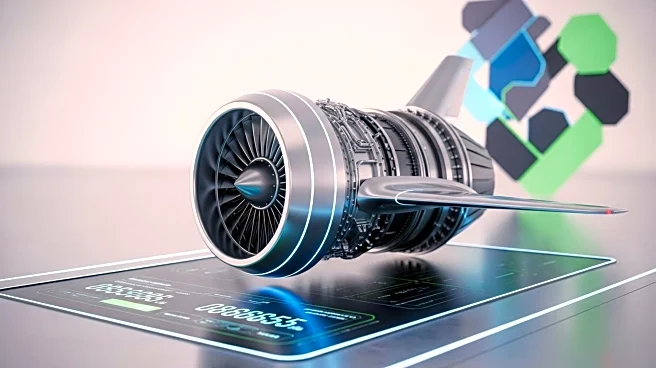What is the story about?
What's Happening?
The propulsion industry is actively responding to the increasing military demand for cost-effective munitions and unmanned platforms. Companies have recently introduced new engines tailored for these systems, with a particular focus on Collaborative Combat Aircraft (CCA) platforms. In the United States, the air force's CCA Increment 1 program is a focal point, featuring General Atomics' YFQ-42 and Anduril's YFQ-44 platforms. These developments raise questions about the finality and operational capabilities of Increment 1 solutions. According to Kaare Erickson, senior vice-president of strategic campaigns for combat and strategic systems at Rolls-Royce North America, the air force plans to experiment and test these systems while simultaneously launching Increment 2.
Why It's Important?
The propulsion industry's shift towards unmanned platforms reflects a broader trend in military strategy, emphasizing cost efficiency and advanced capabilities. This evolution could significantly impact defense contractors and military operations, as companies like Rolls-Royce explore trade-offs between speed, cost, and mission capability. The outcome of these developments will influence the future of military aviation and the competitive landscape of defense technology providers. Stakeholders in the defense sector, including policymakers and military strategists, stand to gain from advancements that enhance operational efficiency and reduce costs.
What's Next?
As the air force continues to test and develop CCA platforms, the propulsion industry will likely see further innovation and adaptation. The launch of Increment 2 suggests ongoing investment in refining these technologies. Companies will need to balance rapid delivery with cost and capability considerations, potentially leading to new partnerships and technological breakthroughs. The industry's response will shape the future of unmanned military platforms and their integration into broader defense strategies.
Beyond the Headlines
The propulsion industry's focus on unmanned platforms may also have ethical and strategic implications. As these technologies become more prevalent, questions about their use in combat and the potential for autonomous decision-making will arise. The balance between human oversight and machine autonomy will be a critical consideration for military and civilian leaders alike.















